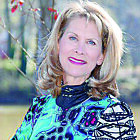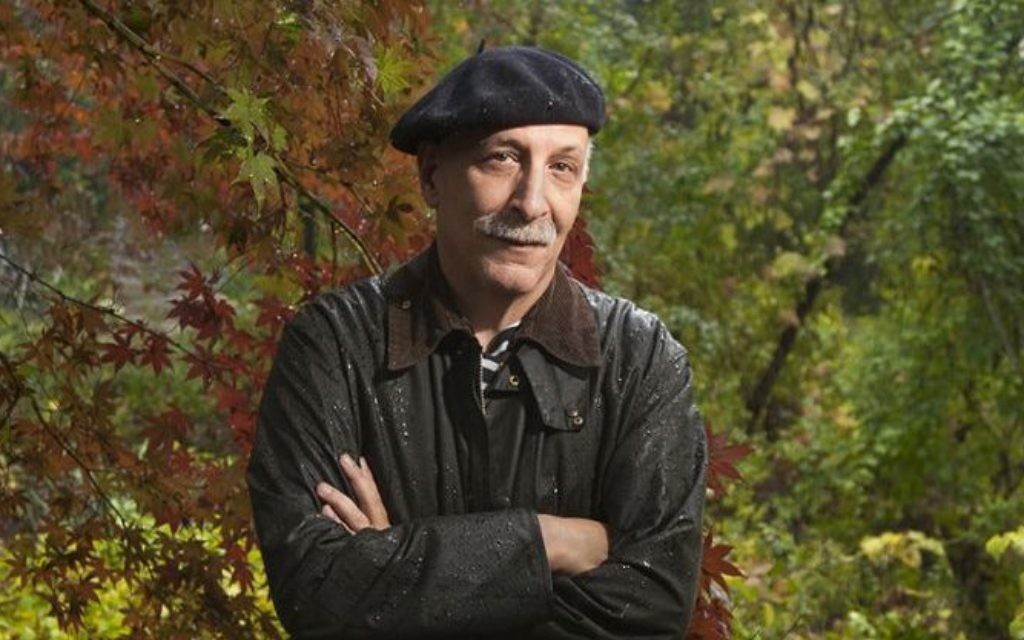Murder Mystery Links Shoah, Cold War via Atlanta
Author Peter Golden, who has interviewed presidents and other world leaders, is coming to town.
Award-winning journalist, historian and author Peter Golden’s new thriller, “Nothing Is Forgotten,” connects the Holocaust and the Cold War based on real events through the use of primary and secondary sources and extensive interviews.
The story begins in 1965 when a woman is killed in her family candy store. Her grandson goes on a life-changing quest across Europe, the Soviet Union and the United States to find her murderer.
He winds up in Atlanta, where he uncovers his grandmother’s connection to Soviet partisans in World War II, to Dachau and Auschwitz, and to the battle conducted by the CIA and KGB over prosecuting Nazi war criminals.
Get The AJT Newsletter by email and never miss our top stories Free Sign Up
Golden, who will have book signings April 23 and 24 in metro Atlanta and whose previous works include “Comeback Love” and “Wherever There Is Light,” has interviewed Presidents Richard Nixon, Gerald Ford, Ronald Reagan and George H.W. Bush; Secretaries of State Henry Kissinger, Al Haig, George Shultz and Lawrence Eagleburger; Israeli Prime Ministers Yitzhak Rabin, Shimon Peres and Yitzhak Shamir; and Soviet President Mikhail Gorbachev.

By Peter Golden
Atria Books, 352 pages, $26
Golden makes the timely point that Americans have drastically underrated the impact of World War II on the Soviets, and this lack of insight makes it harder for Americans to understand Vladimir Putin and modern Russia.
Q: You’ve met with some of the most intellectual people in the world. How did you compartmentalize the leap to fiction?
A: I take the attitude that narrative is narrative — you must inform and entertain the reader. The difference is simple. In nonfiction, you look up things and footnote it. In fiction, or at least in “Nothing Is Forgotten,” I looked up the facts and reimagined them. And I added the source notes back in.
Q: Why Georgia, our state?
A: Georgia has always been a mix of old and new, a land of tradition that also sits on the cutting edge, a place settled in its ways and yet offering a second-chance to those roughed-up by life. And finally, like the Soviet Union, Georgia has known its tragic share of war and widespread destruction.
Q: In today’s political brew, what observation can you share about Putin that would enlighten us?
A: Putin’s anger toward the West, I believe, is rooted in World War II. His older brother died during the siege of Leningrad. His father was terribly wounded. His mother’s brothers were killed. So Putin, like many citizens of Russia, is quite sensitive to any threats on his borders. It is too reminiscent of the 3 million soldiers Hitler sent to invade in June 1941 and cost the Soviets some 25 million killed — approximately 40 percent of those who died in the entire conflict. And NATO has been inching closer to Russian borders, though President Bush (41) and his secretary of state, James Baker, promised Gorbachev we wouldn’t do this. In Putin’s mind, he sees us attacking what is most precious in Russian life: security from outsiders. So I suspect he struck back at one of the sacred facets of American life: our elections.
Q: Of all the folks you have interviewed, who was the most fascinating?
A: In one way or another, they were all fascinating, but I’d say it was a three-way tie among Richard Nixon, Yitzhak Rabin and Mikhail Gorbachev. And for the same reason: Each leader had been intimately involved in his country’s history, and that history has shaped much of my life. Nixon from 1946 on, when he was elected to Congress, had a front-row seat at the Cold War. Yitzhak Rabin started out as a private in the Palmach in 1941, seven years before Israel became a state, and wound up prime minister. Listening to him talk was as though history had suddenly been given a voice. Gorbachev was born in 1931 to a peasant Ukrainian-Russian family and worked on a collective farm while Stalin was still in power. And he, too, would see history change — and would play a significant role in those changes. He is also, perhaps, the most deserving recipient ever of the Nobel Peace Prize. The breakup of the Soviet Union could have dragged the world to war. But Gorbachev refused to let that happen.
Who: Peter Golden
What: Book talk and signing
Where: FoxTale Book Shoppe, 105 E. Main St., Woodstock
When: 6:30 p.m. Monday, April 23
Admission: Free; www.foxtalebookshoppe.com/events
Where: Margaret Mitchell House, 979 Crescent Ave., Midtown
When: 7 p.m. Tuesday, April 24
Admission: $10 ($5 for Atlanta History Center members); www.atlantahistorycenter.com/programs/peter-golden-nothing-is-forgotten





comments